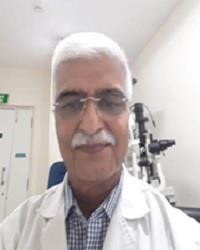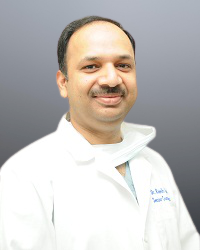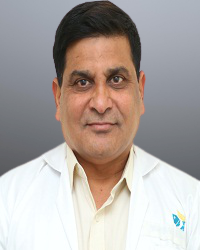Best Doctors for Glaucoma in Hyderabad
Glaucoma is a degenerative eye condition characterised by an increase in intraocular pressure (pressure within the eye). This often results in damage to the optic nerve which leads to loss of vision. While primary glaucoma cannot be linked to any identifiable cause, secondary glaucoma often stems from other health issues like diabetes, tumours, or even eye injuries.
Hyderabad is home to some of the best glaucoma doctors in the country. At Apollo Hospitals Hyderabad, glaucoma specialists are well-equipped and knowledgeable about the condition. Skilled optic nerve damage specialists provide excellence in the standard of care and treatment.









 Call Now
Call Now













